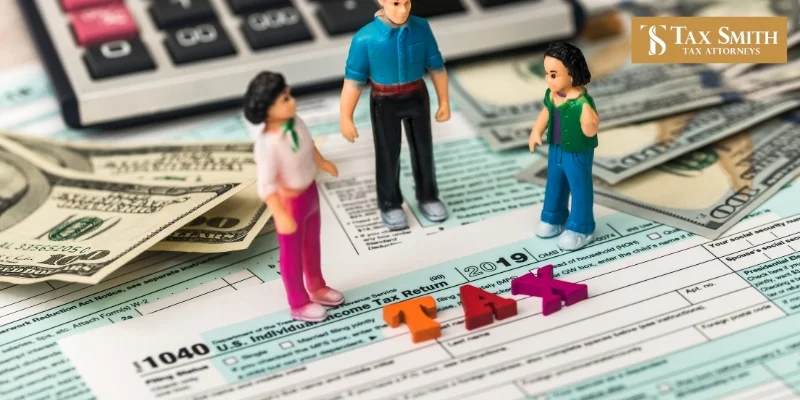Receiving a notice about a creditor’s intent to levy your bank account can be very stressful, particularly when you don’t understand the process. Many ask, “What is a levy on a bank account?” A bank levy is a collection action that a creditor can take when you have not paid your debt.
After providing you with notice, your bank account is frozen for a period of time. After your account is frozen for a set time, the creditor will remove the funds from your account to cover your debt. This includes the principal debt, any penalties, and the interest that has accrued.
There are many reasons why someone can end up behind on their bills or miss tax payments. When these unpaid amounts are unaddressed, the problem will only grow bigger. If you are subjected to a bank levy, it means that the creditor has attempted to contact you and has been unable to recover the debt. It also generally means that the debt is significant. It’s important to understand how a bank levy works and what you can do.
The Process of a Bank Levy

For most consumer creditors to place a bank levy, they must get court approval. To get this approval, they must first file a claim against you in court. It’s important to respond to a claim, as this may allow you to prevent a bank levy. During the case, the creditor must prove the following:
- You owe them the debt.
- The debt they claim you owe is correct.
- They have the legal right to file a claim against you over the debt.
If the court rules against you, then the creditor can put a levy on your account. You are more likely to see this result if you do not respond to the filed claim, and the court files a default judgment against you.
If the creditor placing the levy is the IRS, then court approval isn’t needed. You are more likely to see a bank levy from the IRS if you owe a tax debt, the debt is significant, and you have not responded to attempts to contact you.
In FY 2023, the IRS collected over $104 billion in unpaid assessments. Bank and wage levies are both enforcement actions used to help the agency secure these unpaid assessments. In the same year, there were 286,270 requests made to third parties to implement levies.
In most cases, the IRS only places a bank levy if the following is true:
- The agency assessed the tax.
- It sent you a Notice and Demand for Payment of the tax owed.
- You refused or failed to pay the tax.
- The IRS sent you a Notice of Your Right to a Hearing.
- The agency sent you a Final Notice of Intent to Levy at least 30 days before placing the levy.
- The agency sent you a Notice of Third-Party Contact prior to contacting a bank, employer, or other entity to place the levy.
Typically, after the levy is implemented, you have 21 days when your bank account will be frozen. This means you cannot access or withdraw funds. If you do nothing during this period, the funds will be removed. If the money in the account is insufficient to cover your debt, the creditor may place levies on other bank accounts.
How Can You Prevent a Bank Levy?
You can preemptively avoid a bank levy by avoiding significant debt and paying off any debt you accrue. However, this is often unhelpful advice if you are imminently facing a levy. Instead, you should get in contact with the creditor while also securing the help of a bank levy attorney. in Jacksonville. You might negotiate with the creditor for another method of repaying your debt. An attorney can review these options.
If your debt is federal tax debt, you have options, especially if the bank levy prevents you from meeting your basic needs. The IRS is open to negotiation and often works to assist taxpayers with their tax issues. In fiscal year 2023, the Taxpayer Assistance Centers closed 222,996 cases of requests for taxpayer assistance. You could reach other resolutions for your tax debt and avoid a bank levy.

FAQs About Levy on a Bank Account
What Happens When Your Bank Account Gets Levied?
When your bank account gets levied, the debt that you owe the creditor, as well as any penalties and interest, is removed from your bank account. This does not happen immediately. You will receive notices of nonpayment and a notice of the levy. You will also have a period of time when your bank account is frozen before the funds are removed. Most creditors must get court approval to levy your account. Others, like the IRS, don’t.
How Do I Remove a Levy From My Bank Account?
The easiest way to remove a levy from your bank account is to pay your debt. You can also contact the creditor who placed the levy to request a levy release. This can enable you to pay back the initial debt another way, such as through a payment plan. When the levy is placed by the IRS, the agency is required to release the levy if it prevents you from meeting your basic living expenses.
How Do I Protect My Bank Account From a Levy?
While you could take steps to limit the impact a levy has on your bank account, it is difficult to fully protect an account. There may be certain types of income in your bank account that are exempt from a levy. If a creditor has court approval to place a levy on an account without exempt income, then your options are to pay the debt or negotiate an alternate payment method.
How Long Does a Levy Stay on Your Account?
A bank levy placed by the IRS stays on your account for 21 days after it goes into effect. When these 21 days are up, the IRS will remove the funds from your bank account. Many other bank levies placed by consumer creditors are likely to have a similar holding period. It’s important to address the levy sooner rather than later. Ignoring the levy will not make the problem go away, and the creditor may levy other accounts.
Contact TaxSmith, LLC
If you are facing collection actions by the IRS, TaxSmith, LLC, can protect your financial interests. Contact us today.








